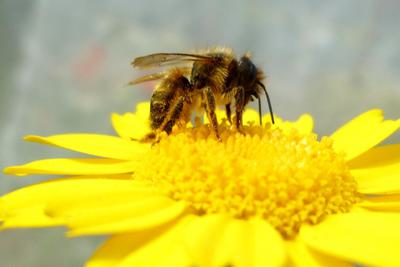If it’s all in the timing, then climate change may spell problems for bees. Scientists have found that global warming may cause temporal mismatches between bees and the plant species on which they depend for food.
German researchers from the University of Würzburg, reporting in the Journal of Animal Biology, investigated three different species of bees that hatch in the spring. They set up 36 flight cages, which allowed them to time the emergence of the bees so it was simultaneous with the flowering of plants in the cage or occurred three or six days prior to flowering. The study showed that bees that hatched prior to flowering suffered from lower rates of reproduction, were less active, and faced greater risk from predators and parasites.
“Already a minor temporal mismatch of three or six days is enough to harm the bees,” says Mariela Schenk, the study’s author.
The decline of bee species, adds ecologist Andrea Holzschuh, who led the study, would also reduce plant pollination in general, which is widely viewed as a threat to global agriculture.
